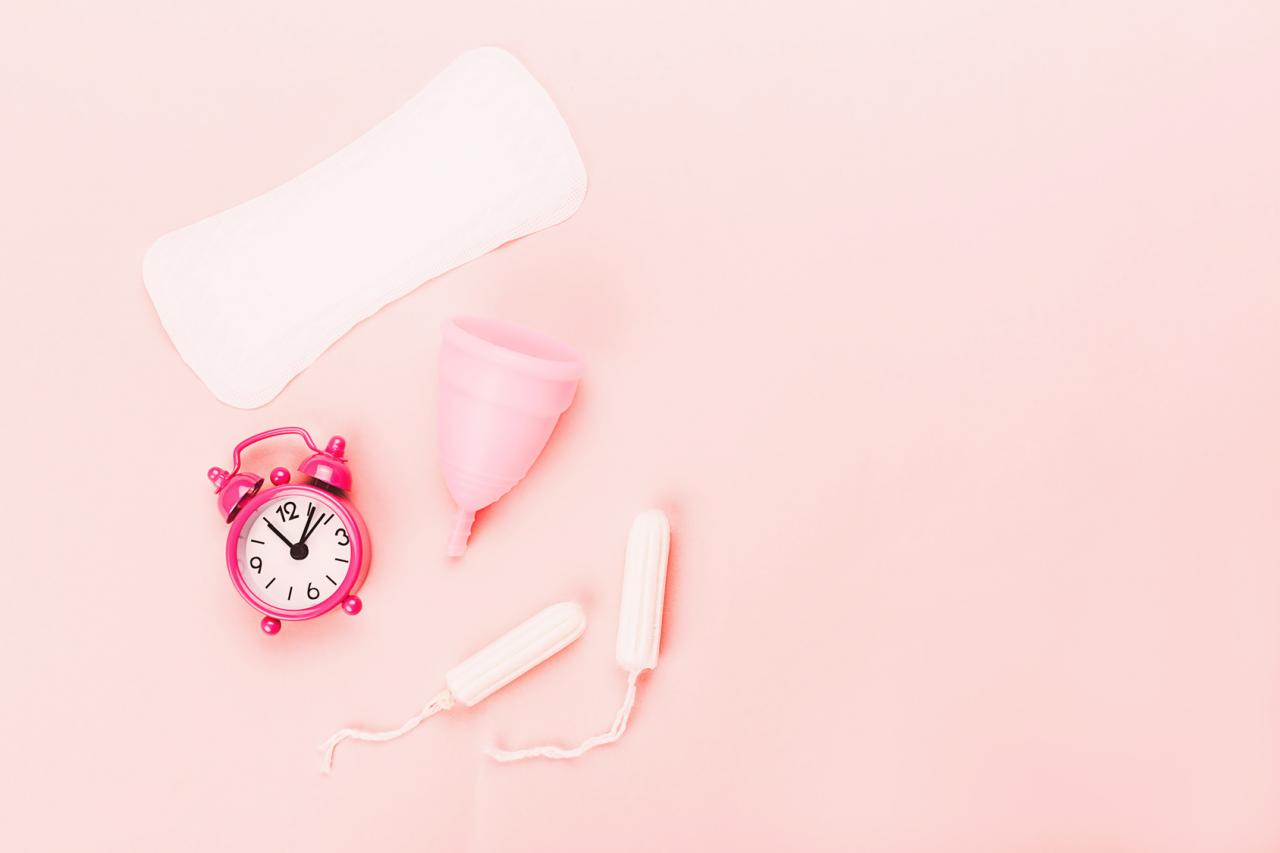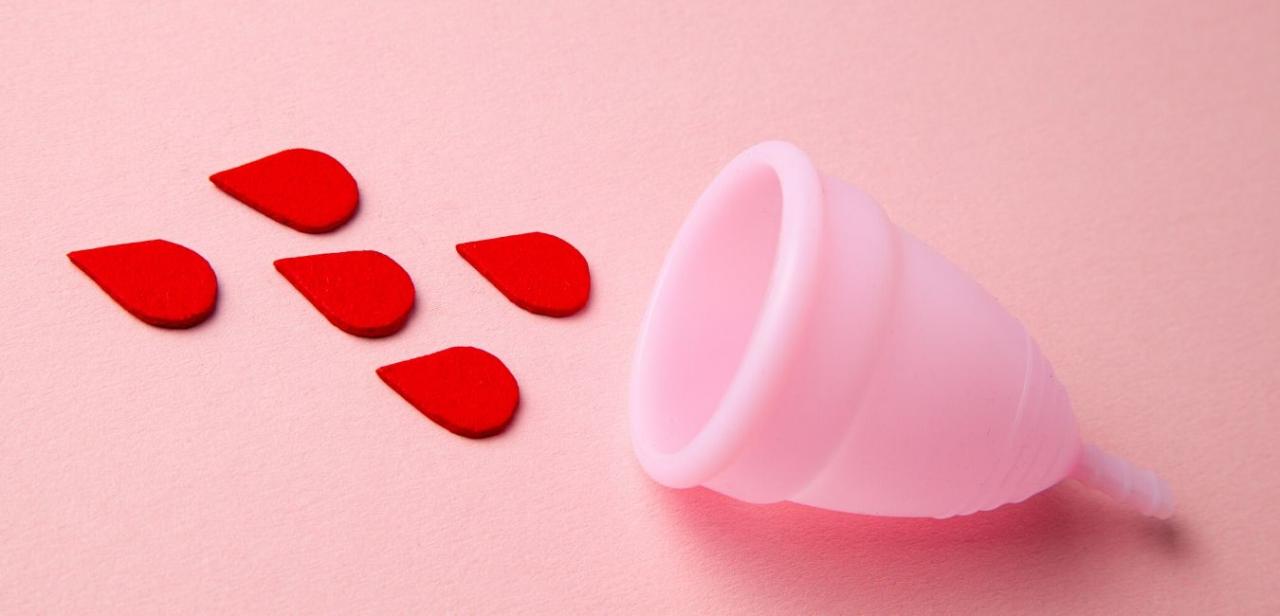 Andres Rodriguez/PhotoSpin
Andres Rodriguez/PhotoSpin
The menstrual cycle occurs in all females from the onset to puberty (average age 11 or 12 years) to the menopause in middle age (average age between 45-55). The lining of the uterus is shed via vaginal bleeding when a girl or woman has not conceived a pregnancy.
The menstrual period lasts between two days and seven days, usually occurring once every 28 days, although anything from once every 24 days to once every 35 days is considered normal.
If you are having a period more than once every 24 days, it is considered an irregular cycle.
Having a period once every two weeks, or twice a month is abnormal and you should see your doctor because you may become anemic if you are having very frequent periods. They are sometimes a sign of infection or other medical problem that would need treatment.
Reasons for a period every two weeks could be:
• Dramatic weight loss or gain -- This changes the hormones in the body and these are responsible for directing when the period will start.
• Excessive exercise -- This too disrupts hormones.
• Stress -- Exams, family argument, financial worries, divorce, even a holiday can cause a temporary change in your menstrual cycle.
• Illness and/or medications -- Some medications can affect your cycle. Talk to your doctor about altering or stopping your medication if you think this is happening.
• Uterine problems such as polyps, cysts, fibroids or tumors (either benign or cancerous).
• Sexually transmitted infections -- These can cause bleeding in between periods which can be mistaken for a period.
• Thyroid problems -- Thyroid disease could cause a thickening of the uterine lining, resulting in more bleeding than normal.
• Reactions to contraceptive methods -- Sometimes the pill, depo provera injections or the copper-only IUD can result in a change in your cycle.
~ The pill and IUD can make you bleed in between periods, known as "breakthrough bleeding" and this may be mistaken for a period.
~ The IUD can also make your periods heavier.
~ The depo-provera injection can make your cycle irregular, however, it often stops your period altogether instead of making it more frequent.
~ Sometimes changing or stopping your method of contraception can cause a sudden drop in hormones and this can result in a change to your cycle.
• Onset of menopause -- In women aged 45 and over, having periods every two weeks can be a sign that you are about to go through menopause. It can be a sign of ovulation beginning to shut down. If you are under 45, having irregular periods in addition to other symptoms commonly associated with menopause, may signal premature ovarian failure.
Treatment
Sometimes treatment is not necessary, for instance, if the disruption in cycle is due to stress, weight loss or gain, or illness, it may be temporary and may correct itself in time.
However, to rule out other possibilities your doctor will perform a pelvic examination. Your doctor may also take a sample of the uterine lining as well as doing an ultrasound scan to see if there are any obstructions in the uterus, such as fibroids.
If any obstructions are found, you can be referred for surgery to have them removed. If any cancer is found, you will be referred to an oncologist who will plan your care with you.
Sexually transmitted infections can be treated with antibiotics (and the use of condoms to prevent further infections). Your partner may have to be treated as well.
If the problem is caused by a contraceptive device or medication, this can usually be changed to stop the problem.
Heavy and/or frequent periods can sometimes be controlled by certain brands of the pill. If you find they are really disrupting your life, for instance, you are bleeding through your clothes, have to miss work days and can’t plan your holidays, this may be an option depending on your medical history.
Hormone treatment could also be given in this scenario, if you have thyroid disease or if you are starting menopause.
Sources:
Periods, Heavy. NHS Choices. Web. 26 May 2012. http://www.nhs.uk/conditions/periods-heavy/pages/introduction.aspx
Heavy Periods (Menorrhagia). WebMD. Retrieved May 27, 2012.
http://women.webmd.com/guide/heavy-period-causes-treatments
Top Ten Causes of Heavy Menstrual Bleeding. About.com Women's health. Retrieved May 27, 2012. http://womenshealth.about.com/od/abnormalbleeding/a/causemenorrhagi.htm
Irregular Periods Every Two Weeks, 34 Menopause Symptoms. Web. 26 May 2012.
http://www.34-menopause-symptoms.com/irregular-periods/articles/irregular-periods-every-two-weeks.htm
Premature Ovarian Failure, National Insititute for Child Health and Human Development. Web. 26 May 2012. http://www.nichd.nih.gov/health/topics/Premature_Ovarian_Failure.cfm
Joanna is a freelance health writer for The Mother magazine and Suite 101 with a column on infertility, http://infertility.suite101.com/ She is the mother of five children and practices natural childbirth, delayed cord clamping, full term breastfeeding and organic food diet.
Reviewed May 28, 2012
by Michele Blacksberg RN
Edited by Jody Smith






Add a Comment221 Comments
Hello Anonymous,
I am truly sorry to hear about what you have been experiencing. Please contact your gynecologist today. You have a complex history involving PCOS, endometriosis, and four miscarriages. The changes and passing a large blood clot are abnormal and must be evaluated by your doctor.
Please keep us updated.
March 29, 2016 - 8:19amWishing you well,
Maryann
This Comment
For the past 6 months I have been getting my period every two weeks and feel so weak when I'm on it, the lack of energy is insane. Besides seeing a doctor, is there a natural way to deal with this?
March 15, 2016 - 12:01amThis Comment
Hi Anonymous,
First, you must contact your gynecologist, report this and schedule an appointment. With a physical exam and blood tests, your doctor can determine the cause and offer any recommendations.
Your lack of energy could be the result of iron deficiency anemia caused by having a period every two weeks. This can be confirmed with a blood test.
Call today,
March 15, 2016 - 8:31amMaryann
This Comment
I started my periods at 8yrs old they were always heavy and lasted at least two weeks and were very irregular. At 22 became pregnant with twins. Had them at 33 weeks by csection. Since then had regular periods till February 2015. Then had severe bleeding and cramping went to obgyn took tests and said i was fine. Now this February i had two periods. During the second period i had unprotected sex. I am a 42 year old diabetic. Is it possible I'm pregnant? Or could having two periods mean I'm premenopausal even though the obgyn said I have many more years?
March 14, 2016 - 8:33pmThis Comment
Hi Anonymous,
When you last saw your gynecologist in February, was an pelvic ultrasound done?
The onset of severe bleeding and cramping is concerning. Having two periods in one month is not normal.
During perimenopause, fluctuations in estrogen levels cause irregularities in the menstrual cycle. Your menstrual cycles may lengthen or shorten, and you may begin having menstrual cycles in which you do not (ovulate.
Anonymous, with a history of irregular menstruation and these recent changes, would you consider getting the opinion of another gynecologist?
Regards,
March 15, 2016 - 8:42amMaryann
This Comment
For the past several months, I have been having a regular period once a month, and then a muddy period 2 weeks later. Today, I started what should have been my regular period, but instead it has been a muddy type. I'm 28 and a little concerned. Should I be having one every 2 weeks?
March 12, 2016 - 10:04pmThis Comment
Hi
I'm 36 and have endometriosis. An op six months ago removed a large cyst, one ovary and a Fallopian tube, and since then my periods have been every 17 days or so. I also have multiple sclerosis but am unaware of this affecting hormone balance. Do you think my cycle is just settling down after the operation, or could there be something more serious going on?
Thanks
February 22, 2016 - 3:02amThis Comment
Hi Anonymous,
I really think you need to mention this to your gynecologist. The menstrual cycle is regulated by hormones and the removal of one ovary may be causing your period to happen every 17 days.
Regards,
February 22, 2016 - 10:24amMaryann
This Comment
Hello,
I'm 30 years old, I had a child 4 years ago and haven't been on BC for several years. Since going off BC I've had very regular cycles of about 30-31 days, but now I've had what seems like 3 periods in just under one month (in fact, the bleeding and cramping has been somewhat heavier and longer-lasting than my typical periods). I spoke with the nurse at my OBGYN's office, and she pretty much wrote it off as "nothing to worry about unless it keeps happening," and that they will see me at my annual exam in 2 months. Should this be of enough concern that I should request a sooner appointment? I am thinking about getting pregnant again later this year and want to make sure my hormones aren't getting out of whack.
Thank you!
February 19, 2016 - 8:28amThis Comment
Hello Anonymous,
My first concern is the risk for iron deficiency anemia resulting from prolonged ( 3 periods in under one month) and heavier than normal bleeding.
If I were you and this happened again, I would call and ask for an earlier appointment.
During your next appointment, blood tests should be ordered to check hemoglobin, hematocrit and hormone levels.
Please keep us updated.
February 19, 2016 - 10:06amMaryann
This Comment